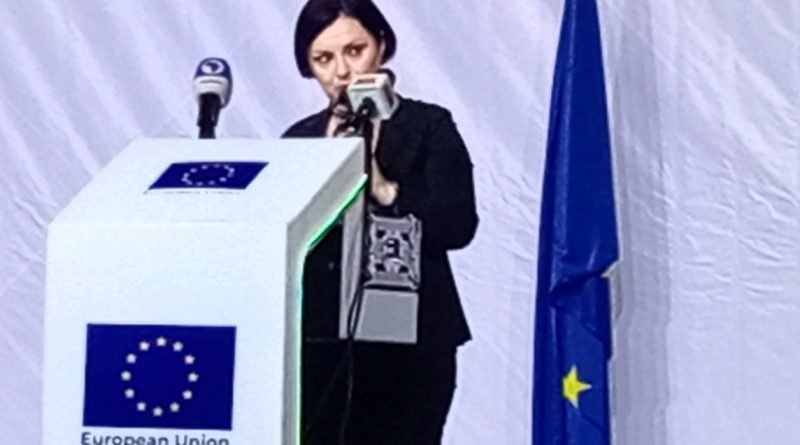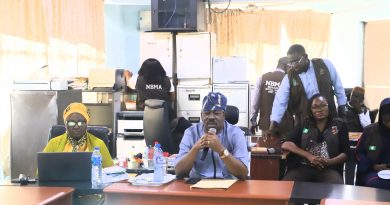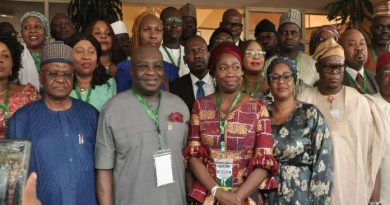EU Closes phase I of SDGN, Launches phase II as stakeholders appluad initiative
ORU Leonard
The European Union has on Monday closed the phase I of the Support to Democratic Governance in Nigeria (SDGN), just as the phase II was launched with a €39 million initiative.
The project which was applauded by stakeholders is aimed at fostering a functioning pluralistic, inclusive, participatory and representative democracy in Nigeria.
As a follow up on the success of phase I, Identification and Formulation of phase II of the programme was done in consultation with the Nigerian Government and key stakeholders such as the Independent National Electoral Commission (INEC) and civil society organisations.
The phase II programme will be implemented until 2027, with a focus on six specific components: Improve the quality of electoral
Improve the quality of electoral administration in Nigeria; Strengthen capacities for legislative and judicial reform in compliance with democratic principles and standards; Enhance pluralism, internal democracy and equality of opportunity in the political parties and the political party system.
Others are; Empower media, including new media to promote fair and ethical coverage of the electoral process and combat hate speech and disinformation; Enhance participation of women, youth and other marginalized groups in the political process; and Empower civil society organisations and relevant agencies to demand greater transparency and accountability in the electoral and decision making process, and promote greater citizens’ participation.
Speaking at the launch of the Phase II in Abuja on Monday, September 12, the EU Ambassador to Nigeria and ECOWAS, Amb. Samuela Isopi, said the European Union has provided technical support to key electoral institutions and stakeholders since Nigeria’s return to democratic rule in 1999, with over €150 million committed so far, adding that it will continue to provide targeted support by building on the successes of the past electoral cycles and taking forward the very significant lessons learned within the period.
Commenting on the 2023 general election which is less than six months away, she remarked that as the largest democracy in Africa, elections in Nigeria matter to Nigeria Nigerians, and Africa, as their outcome will be watched and felt well beyond its borders, adding also, that Nigeria is at a pivotal moment in the process, and who wins the elections is for the Nigerian people to decide.
According to her, “Nigeria has the responsibility to lead and inspire other democracies on the continent. As a longstanding partner, the EU shares Nigeria’s interest to see a solid process leading to peaceful, free, fair and credible elections. We would like all Nigerian voters to peacefully and freely cast their vote to choose their leaders and contribute to strengthening their country’s democracy and good governance.
“We are particularly keen to see greater participation of youth, women and people with disabilities. The mobilisation we have been witnessing across the country—especially among the youth— to register in view of next elections is a strong sign: it is a message from the Nigerians, from the youth in particular, that they believe in democracy. It is also a sign of trust in the electoral process that has made tremendous progress over the past few years and months, thanks to the reforms and the technical innovations introduced by The Independent Electoral Commission INEC to make elections more transparent and more credible, and to reassure voters that “their voted will count and will be respected”, she said.
While calling for peaceful and issue-based electoral campaigns, she encouraged all stakeholders to take a firm stance against violence and hate speech, and also emphasized the need to support and respect the fundamental and independent role of INEC as it fulfils its constitutional mandate.




